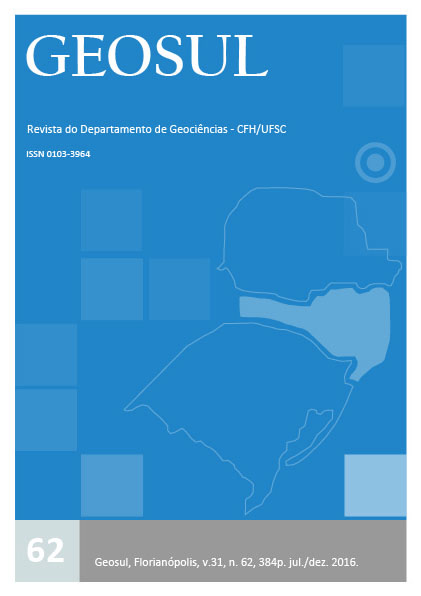Vegetation index estimation in the detection of environmental changes in the Pajeú river watershed
DOI:
https://doi.org/10.5007/2177-5230.2016v31n62p59Abstract
The environmental monitoring of watersheds with the use of remote sensing has been essential in the diagnosis of anthropogenic and / or natural changes in the landscape. Spatial and temporal analyses of the various vegetation indexes can detect and evaluate impacts and degradation as a result of soil use and occupation and guide the establishment of reversal policies on a scenario of environmental degradation. Thus, this research aimed to identify and analyze the space-time dynamics of vegetation indexes in the detection of environmental changes in the Pajeú river watershed with application of some components of the SEBAL algorithm. To obtain estimates of these indexes, MODIS products for the years 2003, 2005, 2007, 2012, 2013 and 2014 were used. The results showed that the southern portion of the Pajeú river watershed is the most degraded, with minor rainfall and prone to desertification. It was concluded that the vegetation indexes evaluated by the aforementioned algorithm are effective and efficient in understanding the dynamics of spatial, temporal and spectral patterns of semiarid environments, such as the backlands of northeastern Brazil.Downloads
Published
2016-09-27
Issue
Section
Artigos
License

Este trabalho está licenciado com uma Licença Creative Commons - Atribuição 4.0 Internacional.





